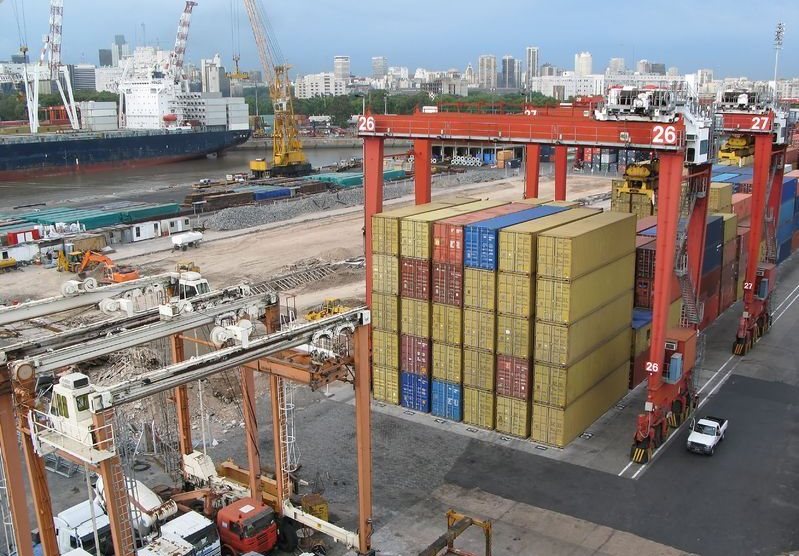
Top stories






More news















Air freight was the only sub-sector of the Ctrack Transport and Freight Index that managed to record growth in the fourth quarter of 2022. The Ctrack Transport and Freight Index (Ctrack TFI) declined by 3.5% on a monthly basis in December, following monthly declines of 1.9% and 2.3% in November and October, respectively. On an annual basis, the Ctrack Transport and Freight Index ended 2022 only 2.9% higher than a year earlier, which was a long way from the 13.7% yearly growth rate recorded as recently as August 2022.
"The South African logistics sector was showing great promise and on track for a record year, but unfortunately, a continuous barrage of unforeseen external factors stopped that from happening," says Hein Jordt, Chief Executive Officer of Ctrack Africa.
The detrimental impact of the Transnet strike on the logistics sector is most evident in the fact that five of the six sub-sectors of the index declined notably on a quarterly basis during the fourth quarter of 2022. The sea freight, rail freight and pipeline sub-sectors of the Index were hardest hit with double-digit declines, while air freight turned out to be a beneficiary of the other sub-sectors demise. Overall, the index declined by 7.5% during the fourth quarter, the worst quarterly decline since June 2020, when the economy was still in the midst of the Covid-19 pandemic.
Looking back at 2022, the worst-performing sub-sector of the logistics sector was rail freight, which declined by a notable 22.4% year on year. While the impact of the Transnet strike was a dominant factor in quarter four, the further implosion of rail freight during 2022 has been a long time coming. The ongoing underperformance of the rail industry, due to large-scale theft of copper cables, insufficient maintenance, lack of locomotives, corruption, derailments and vandalism on freight trains, is perhaps the most concerning development of the year, given the ongoing negative impact on the economy at large.
Companies in many sectors of the economy have recently been reporting that inadequate rail capacity and lack of service delivery have been hampering factors in production, trade and growth.
According to StatsSA's Land Transport Survey, payload for rail freight transportation had reached its lowest level since 2008, when data was first reported, and now accounts for only 11.2% of total freight according to the latest data point recorded in October 2022. This ratio reached a high of 29.5% in January 2015. Based on an annual analysis, payload for rail freight transportation has now been declining for five consecutive years, with little hope for a turnaround of this situation soon.
The beneficiary of this reality has been the road freight sub-sector, which, on average, accounts for approximately 84% of total freight transportation in South Africa. The number of heavy trucks on both the N3 and N4 toll routes increased compared to a year ago, while the road freight payload for the country also showed continuous growth throughout the year. The road freight component of the index increased by 16.2% year on year in December, the 21st straight month of double-digit annual growth rates recorded.
The sea freight sub-sector of the index declined by 13.3% during December compared to a year ago and declined on a monthly (-4.0%) and quarterly basis (-18.2%), reflecting the negative impact of the Transnet strike on ports' activities. Overall, container handling in the country recovered somewhat after declining by a significant 58.7% on a monthly basis during October, however, by the end of 2022, it remained 28% below the September 2022 pre-strike level. In addition to container handling, general cargo handling was also negatively impacted by the strike and has only partially recovered in the past two months, confirming fears that it will take the industry months to recover from the crippling strike.
The storage and handling sub-sector of the index remained under pressure for most of 2022, with a trend of declining inventory levels evident, followed by the Transnet strike that just made matters worse. The storage and handling sub-sector declined by 11.7% in December compared to a year ago and declined on a monthly (-6.2%) and quarterly basis (-9.2%).
The transport of liquid fuels via Transnet Pipelines (TPL) increased somewhat in the past two months, with the pipeline sub-sector of the index increasing by 1.5% on a monthly basis, however still tracking 6.2% lower in December, compared to a year earlier.
The air freight sector turned out to be one of 2022's star performers, a combination of ongoing post-Covid recovery and, in the last quarter, also a beneficiary of the logistical troubles created by the Transnet strike. The air freight sub-sector increased by 4.2% on a quarterly basis and was the only sub-sector to experience growth at 7.8% higher in December, compared to a year ago. The stellar performance of air freight helped to soften the impact of the Transnet strike on the overall performance of the index considerably.
The December 2022 Ctrack Transport and Freight Index finished at 111.6, representing a notable decline compared to the September performance of 120.7, signalling that the transport sector's lack of performance could have had a negative effect on economic growth during the fourth quarter. As a minimum, the transport sector will likely underperform compared to the other sectors of the economy, in contrast to its outperformance in Q3.
The negative impact of the prolonged Transnet strike will put a damper not only on the transport sector's contribution but also the broader economy's performance in Q4, given linkages to other sectors. In addition to the strike's impact, the ongoing challenges of harsh load shedding, the high cost of living, high production costs due to high fuel prices and rising wage demands, and elevated interest rates, the list of challenges for the South African economy remains extensive.
"The South African economy needs a functioning logistics network amid all of the economic woes currently plaguing our country, and all stakeholders should unite to address the obstacles in the industry," concludes Jordt.